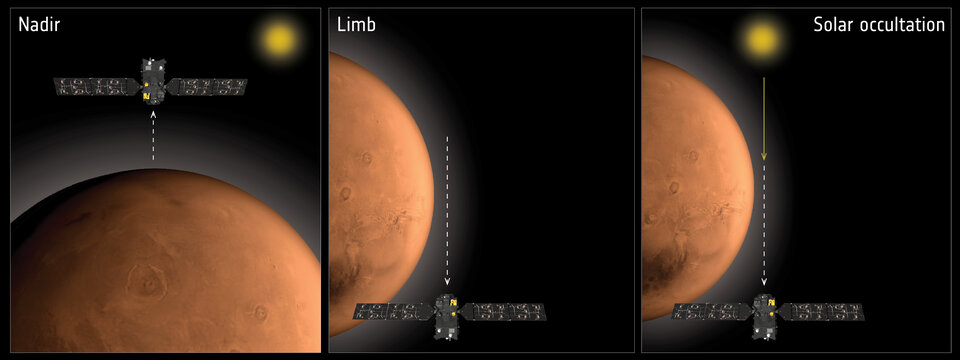ExoMars discovers chlorine in the atmosphere of Mars
ExoMars’ European-Russian probe, the Trace Gas Orbiter (TGO), has been orbiting Mars since October 2016. It has been observing the atmosphere continuously since April 2018 in search of trace gases likely to reveal geological or biological activity. Since the controversial detection of methane in 2004 by the Mars Express mission, no new Martian gas had been identified. TGO has just discovered hydrogen chloride (HCl) using the Atmospheric Chemistry Suite (ACS) instrument.

HCl is composed of a hydrogen atom and a chlorine atom. Scientists have long been on the lookout for gases composed of chlorine or sulfur on Mars because, on Earth, they are regularly emitted by volcanoes. But the fact that HCl has been detected on Mars at very distant locations, without other gases typical of what is expected from volcanic emission having been observed, suggests another explanation. Observations indicate that the chlorine may have originated from dust, which had never been considered until now. Indeed, the ACS team detected hydrogen chloride for the first time during the dust storm that completely covered Mars in 2018. HCl appeared simultaneously in both hemispheres, and disappeared in mid-2019. Scientists are already looking at the 2020 data and see HCl appearing again when dust is lifted again by the winds.
By a process very similar to that observed on Earth, one hypothesis is that salts in the form of sodium chloride – residues from ancient seas or lakes that have now evaporated and become embedded in the dust grains of Mars – are injected into the atmosphere by the wind. This “salty” dust reacts with atmospheric water vapor to release chlorine, which in turn reacts with hydrogen species to form HCl. Chlorine-rich or hydrochloric acid-rich dust could then be redeposited on the surface and undergo further chemical transformations to form perchlorates, revealed by NASA missions that have operated on the surface.
Further Resources
- Scientific article : Transient HCl in the atmosphere of Mars – Science Advances by Oleg Korablev, Kevin S. Olsen, Alexander Trokhimovskiy, Franck Lefèvre, Franck Montmessin et al.
- ESA Press Release : ExoMars discovers new gas and traces water loss on Mars
IRAP Contact
- Michael J. Toplis, michael.toplis@obs-mip.fr






